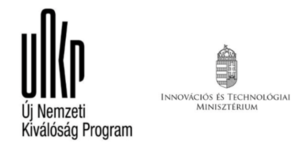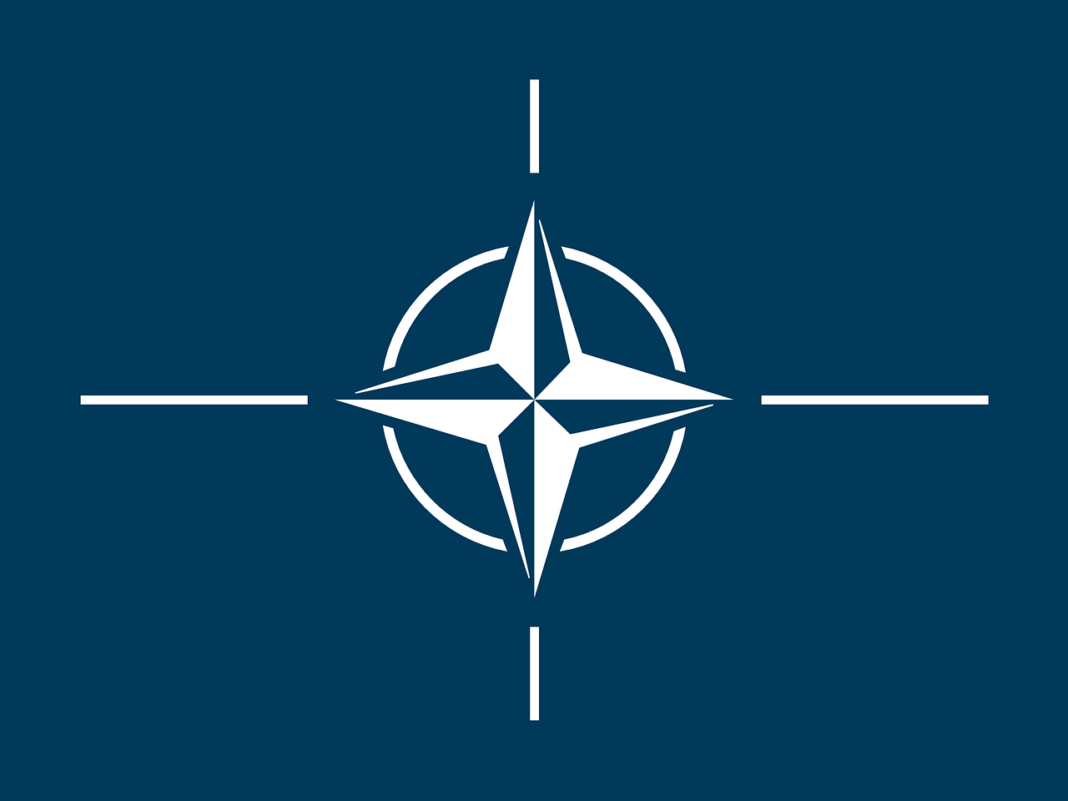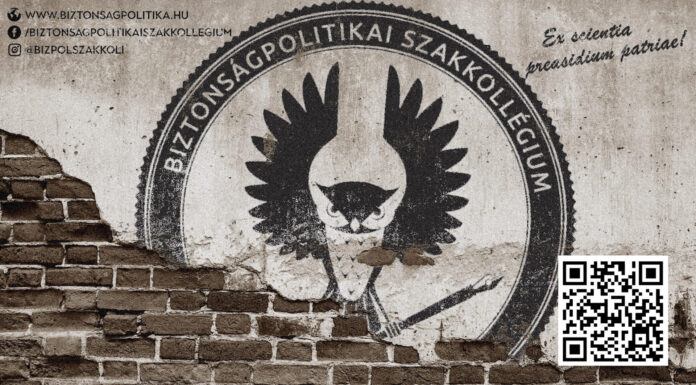For Hungary, as part of the European security complex and NATO, the future of the Western military alliance remains a vital question. Currently, Bosnia and Herzegovina is actively working towards gaining membership, but its prospects are hampered by several foreign and domestic political issues. Hungary can play a dynamic role within its capabilities in resolving this situation, for example by taking on such tasks as running the NATO Contact Point Embassy in Sarajevo.
After the end of the Cold War, NATO has developed a system of Contact Point Embassies to support the Alliance’s partnership and public diplomacy activities in the countries participating in the Partnership for Peace programme (PfP), the Euro-Atlantic Partnership Council (EAPC), the Istanbul Cooperation (ICI) and the Mediterranean Dialogue (MD). In each partner country, an embassy of a NATO member acts as a liaison, meaning these are not diplomatic missions established by NATO directly. The CPEs work in close cooperation with NATO’s Public Diplomacy Division (PDD) to provide information on Alliance objectives and activities in the host country, while also supporting NATO’s Political Affairs and Security Policy Division (PASP) in policy development for the PfP, EAPC, ICI and MD partnership programmes.
NATO member states may volunteer to take on the role of a CPE for two years with their embassies in partner countries. The final decision on the distribution of liaison embassies is made with consensus in the North Atlantic Council. The Public Diplomacy Division coordinates the CPE network and maintains direct contact with all liaison embassies. The CPEs seek out key decision-makers, opinion formers and possible channels for public diplomacy in the host country and organise events in coordination with the PDD. CPEs also inform the public in the partner countries about NATO scholarships and academic research opportunities.
The Contact Point Embassies advise NATO Headquarters on various projects, political dialogue, and changes in public opinion about NATO in the country. The CPEs aid the visits of the Secretary General and the NATO International Staff (IS) to partner countries by providing logistical support, political advice, and briefings on relevant developments in the host country. They also liaise with the embassies of other NATO member states present in the host state to keep them informed about the NATO agenda and to involve them in Alliance-related programmes and events.
Hungary?s NATO CPE*
Hungary, as the host country of the NATO Contact Point Embassy in Sarajevo during 2019-2020, has played an active role in outreach activities related to the Alliance. This was hampered by the COVID-19 pandemic, which made it complicated to organise and hold various conferences and forums. Where appropriate, Hungary also provided support for decision makers regarding relevant political issues. It was actively involved in supporting the adoption of the first Reform Programme 2019-2020, which corresponds in content to the Annual National Programme, but without the objective of ascension into the Alliance. The active involvement of the Embassy of Hungary and the Hungarian leadership was required for the re-establishment of the NATO Cooperation Committee later in 2021, which is the professional body of the BiH government coordinating Euro-Atlantic affairs. On a bilateral basis, Hungary is also assisting Bosnia and Herzegovina’s defence reform through an action plan between the Hungarian and BiH defence ministries.
Péter Sztáray, Hungarian State Secretary for Security Policy, travelled to the capital of Bosnia and Herzegovina on 6-7 March 2019, where he opened the first NATO heads of mission meeting organised by the Embassy of Hungary in Sarajevo as the NATO CPE. The State Secretary met with the commanders of NATO Headquarters in Sarajevo and EUFOR ALTHEA, as well as with Hungarian officers serving in the mission. He held bilateral talks with Deputy Foreign Minister Josip Brkić and Deputy Defence Minister Sead Jušić, while Foreign Minister Igor Crnadak received him on a courtesy call. A meeting of the co-chairs of the Joint Economic Committee of the two countries was also held. Bosnia and Herzegovina expressed its gratitude for Hungary’s consistent support in the country?s Western integration process. Sztáray assured Sarajevo that Budapest will continue to actively engage in the interests of the Western Balkan countries.
The Hungarian-led CPE organised an informal business breakfast on 11 October 2019 with the participation of representatives of NATO member states. The event was part of a series of consultations in which the Hungarian NATO CPE reviewed the state of Bosnia and Herzegovina’s NATO integration, as well as the Alliance’s communication and position on integration, with diplomats from all allied embassies present in the country. The Embassy of Hungary informed the member states that it will visit ten cities in Bosnia and Herzegovina to engage in a dialogue on NATO and the Hungarian experience of the ascension process, with the participation of the ambassadors of the allied member states.
On 7 November 2019, the Embassy of Hungary in cooperation with the Faculty of Political Sciences of the University of Sarajevo, organised a public panel discussion entitled „70 Years of NATO Alliance: the experiences of Hungary and Montenegro.” The event was attended by Denis Hadžović, Director of the Centre for Security Studies NGO, Dean Sead Turčalo, Montenegrin Ambassador Obrad Mišo Stanišić and Hungarian Ambassador Krisztián Pósa. The event, which was attended by the local officials, students at the university and diplomatic corps, was also covered by the BiH press. According to Krisztián Pósa, „One of the key political aspects of NATO membership is that new members become a part of a strong alliance, a participant in NATO’s decisions, not an object of them, while not surrendering sovereignty. And from a military and security perspective, integration contributes to the modernisation of the armed forces, reducing the cost of defence while improving existing capabilities.” According to Sead Turčalo, the panel discussion aimed to re-frame the dialogue on NATO in the country with objective information and transfer of experience. He said his country is at an early stage in the accession process, and there is a lot of work to be done, but there is no other realistic geopolitical alternative. Denis Hadžović stated that the domestic political debate on the Annual National Programme is based on emotions, and that?s why there aren?t sufficient results in this field.
Conclusion
The Western Balkans occupy a prominent place in Hungarian strategic thinking, and Hungary considers it a significant goal regarding the countries of the region to be admitted to the Western alliance system. To this end Hungary is actively involved in preparing, among others, Bosnia and Herzegovina for Western integration. Both within the framework established by the European Union and NATO, and through bilateral cooperation, Budapest is actively working to ensure that the society, the armed forces and the political leadership of Bosnia and Herzegovina are ready for accession, whether through participation in the ALTHEA mission or through the operation of the NATO Contact Point Embassy. However, Bosnia and Herzegovina’s integration with the West is severely hampered by the political structure based on the Dayton Agreement, through which the Serbian side is blocking integration processes. Hungary can only support a settlement that does not provoke renewed conflicts in the region, so it must use its close ? and somewhat controversial ? relations with the Bosnian Serb leadership to reach a compromise that preserves stability in the country.
Written by: Domonkos Bálint Varga
*This section of the article is partly based on an interview conducted by the writer with a Hungarian diplomat stationed in Sarajevo.

Supported by the ÚNKP-21-1-I-NKE-89 New National Excellence Program of the Ministry for Innovation and Technology from the source of the National Research, Development and Innovation Fund.
Kiemelt kép forrása: pixabay.com











